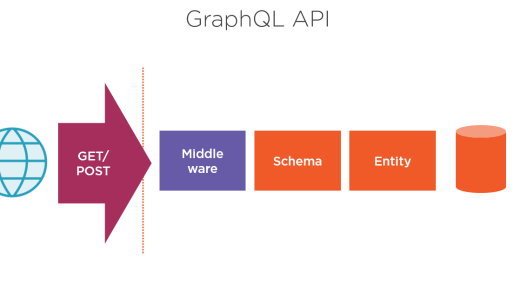Unlock Your Potential with Free Linux Certifications
Introduction to Linux and its Features
Linux is an open-source operating system known for its flexibility and security. It offers a wide range of features that make it a popular choice among tech enthusiasts and professionals. With Linux, you can customize your desktop environment, install various application software, and even use it on different devices like smartphones and tablets. It also provides strong protection against computer viruses and malware, ensuring the safety of your data. Additionally, Linux offers a variety of distributions such as Ubuntu, Fedora, and Debian, each with its own unique features and software repositories. By learning Linux, you can enhance your computer skills and gain valuable certifications that can boost your career in the tech industry.
Career Opportunities and Salary Potential
Free Linux Certifications – Career Opportunities and Salary Potential
| Certification | Career Opportunities | Salary Potential |
|---|---|---|
| LPIC-1: Linux Administrator | Entry-level Linux administration positions | $60,000 – $80,000 per year |
| CompTIA Linux+ | Linux system administrator, network administrator, technical support specialist | $70,000 – $90,000 per year |
| LFCS: Linux Foundation Certified System Administrator | Linux system administrator, DevOps engineer, cloud engineer | $80,000 – $100,000 per year |
| LFCE: Linux Foundation Certified Engineer | Senior Linux system administrator, Linux engineer, cybersecurity analyst | $90,000 – $120,000 per year |
| RHCSA: Red Hat Certified System Administrator | Linux system administrator, Linux engineer, cloud architect | $90,000 – $130,000 per year |
| RHCE: Red Hat Certified Engineer | Senior Linux system administrator, Linux engineer, DevOps engineer | $100,000 – $150,000 per year |
FAQs and Prerequisites for Linux Certification
Linux Certification: Linux certifications are valuable credentials that demonstrate proficiency in the Linux operating system. They can enhance job prospects and career advancement opportunities in the IT industry.
FAQs: Here are some frequently asked questions about Linux certifications:
1. What are the prerequisites for Linux certification? While prerequisites may vary depending on the certification level and provider, having a basic understanding of Linux concepts, command-line interface, and system administration is recommended.
2. Do I need prior experience with Linux to pursue certification? Prior experience with Linux is helpful but not always required. Many certifications offer beginner-level courses that cater to individuals with little or no Linux experience.
3. How long does it take to get Linux certified? The time required to obtain a Linux certification depends on factors such as your prior knowledge, learning pace, and the certification level you aim to achieve. It can range from a few weeks to several months.
4. Are there any free Linux certifications available? Yes, there are free Linux certifications available, such as Linux Professional Institute (LPI) certifications. These certifications provide a cost-effective way to validate your Linux skills.
5. How can I prepare for a Linux certification exam? To prepare for a Linux certification exam, it is recommended to take relevant training courses, practice hands-on with Linux distributions like Ubuntu or Fedora, utilize online resources, and join Linux communities for support and guidance.
Prerequisites: Before pursuing Linux certification, it is beneficial to have knowledge or experience in the following areas:
1. Operating Systems: Understanding the fundamentals of operating systems, including concepts like multitasking, file systems, and user management.
2. Command-Line Interface: Familiarity with the Linux command-line interface (CLI) and basic commands is essential for administering and troubleshooting Linux systems.
3. Computer Hardware: Basic knowledge of computer hardware components and their functions will help in understanding system requirements and troubleshooting hardware-related issues.
4. Networking: Understanding networking concepts such as IP addressing, subnetting, and network protocols is important for configuring network settings in Linux.
5. System Administration: Familiarity with system administration tasks like user management, package installation, file permissions, and security practices will be beneficial.
Proof of Completion and Community Engagement
Once you have completed your Linux training and earned your certification, it’s important to have proof of your accomplishment. This proof can come in the form of a certificate or badge that you can showcase on your resume or online professional profiles, such as LinkedIn. This proof of completion not only validates your skills and knowledge in Linux but also helps you stand out in the job market.
In addition to providing proof of completion, engaging with the Linux community is essential for continuous learning and growth. The Linux community is known for its collaboration and support, making it an excellent resource for furthering your understanding of the operating system. Joining online forums, participating in discussions, and attending Linux-related events can help you stay up to date with the latest trends, technologies, and best practices.
Engaging with the Linux community also opens up opportunities for networking and mentorship. You can connect with experienced Linux professionals who can guide you in your career and provide valuable insights. Sharing your own knowledge and experiences with the community not only helps others but also solidifies your own understanding of Linux concepts.
Furthermore, being an active member of the Linux community can lead to exciting projects and collaborations. You may find opportunities to contribute to open-source projects, which not only enhances your skills but also allows you to make a meaningful impact on the Linux ecosystem.
Networking Academy and Women in Tech Initiatives
The Networking Academy and Women in Tech Initiatives offer free Linux certifications to help individuals enhance their skills and pursue a career in technology. These certifications provide a comprehensive understanding of Linux and its applications, empowering individuals to navigate the world of open-source software. Whether you are a beginner or an experienced user, these certifications cater to individuals of all levels. By obtaining a Linux certification, you gain valuable knowledge in areas such as package management, graphical user interface, and software portability. Additionally, these certifications cover important topics like computer security, malware prevention, and encryption.
Don’t miss out on this opportunity to expand your skillset and join the thriving Linux community.


